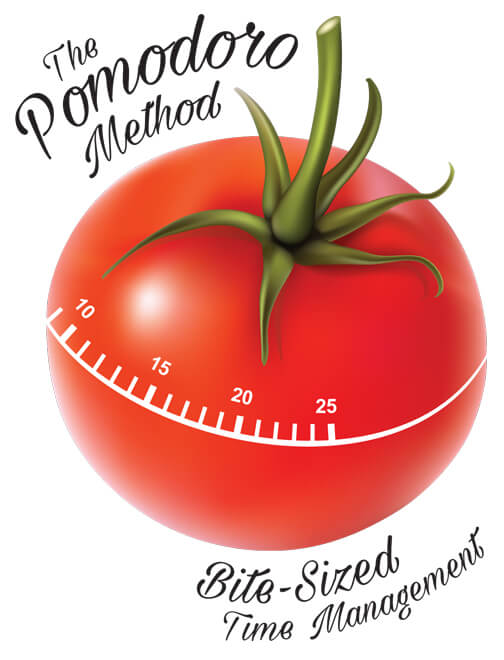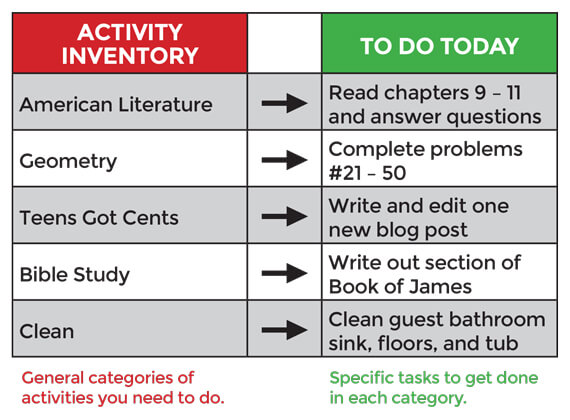
A Tomato Taught Me How To Manage My Time!
Time management is an important skill for teens to develop. No matter what path your students choose for their life, this skill will truly benefit them. There are many ways to manage time but the Pomodoro Technique is the method teenpreneur Eva Baker finds most helpful.
 I’m sure you’ve heard the term “time management” tossed around by teachers and parents. But what does managing our time really mean? For me, it’s what keeps me from hiding under the covers, hoping I can get all my chores and homework done while still having time for things I love to do. Luckily, I’ve found a method that works for me – and it revolves around a tomato!
I’m sure you’ve heard the term “time management” tossed around by teachers and parents. But what does managing our time really mean? For me, it’s what keeps me from hiding under the covers, hoping I can get all my chores and homework done while still having time for things I love to do. Luckily, I’ve found a method that works for me – and it revolves around a tomato!
For me, it’s what keeps me from hiding under the covers, hoping I can get all my chores and homework done while still having time for things I love to do. Luckily, I’ve found a method that works for me – and it revolves around a tomato!
The Pomodoro
In the 1980s, Francesco Cirillo was a college student who had issues focusing on his studies. Frustrated, he began looking at how he went about his day in some detail.
Discovering just how many interruptions he had to deal with, he decided to focus on one thing (like his homework) for a short amount of time. To time it out, he used a small kitchen timer in the shape of a tomato (called pomodoro in Italian).
This method changed his life – and mine! It helps me keep my attention where I need it to be: homework, cleaning, or traveling to activities – while leaving me time to check my Facebook and Pinterest accounts.
You just need a few things to get started. First, like Cirillo, you’ll need a timer (It doesn’t have to be in the shape of a tomato – I use my phone). You will also need “To Do Today” and “Activity Inventory” sheets (both available free from the Pomodoro website).
Planning And Narrowing Down
I start by listing everything I need to get done on my “Activity Inventory” sheet and then I break it down more specifically on the ‘To Do Today” sheet. For example, one of my days a couple of years ago looked like this on the “Inventory” list:
As you can see, I use it a lot to help me get through my sometimes endless stack of schoolwork, but it also works with regular activities like chores – or even answering emails. It even helps me stay on track of my job.
Working Distraction Free
Each Pomodoro activity lasts for 30 minutes – 25 minutes for work and five for a break. During those 25 minutes, I go completely distraction free. No checking social media, no watching YouTube videos, no chatting with friends. Nothing. Just work with my full concentration.
But when it is up, I get five minutes for a quick breather where I can check in on Twitter or send out a couple of texts to my friends. And really, you can do all that in five minutes!
Once my break is up, I set the clock back up for another 25 minutes and get to work on the next item on my list or keep working at the one I was completing before if it was left unfinished.

Managing And Reflecting
During the Pomodoro activity time, I also have a moment to reflect and review. I can assess and record exactly how much time it took me to read a chapter, which allows me to figure out how many Pomodoros it is likely to take next time. For example, if I only have an hour between breakfast and school, I know I can either do two activities that take up one Pomodoro each or one activity that takes up two Pomodoros.
At the end of the day, I am always in awe of what I was able to get accomplished. My mom and I were especially surprised that we were able to clean and organize our entire house when we used this method.
Using the Pomodoro time management system has shown me how easily distracted I get when trying to get homework done. When I remove those distractions and focus for 25 whole minutes, it’s amazing what I can accomplish.
What does this give me? More time to do the fun things I want to do! Why not make the most of the time we have and get our work done quickly so there’s more time for friends and Netflix and whatever else you want to do in life.
Cirillo once said, “Time is our enemy.” Truthfully, we don’t need to fight it to have enough time. Rather, we just need ways to make time work for us, not against us.
- What does it mean to manage your time?
- How do you manage your time now?
- What are the tasks you have to complete every day?
- How many Pomodoros do you think it would take you to complete your tasks?
- Are you willing to try different time-management techniques to find out which one works best for you?
